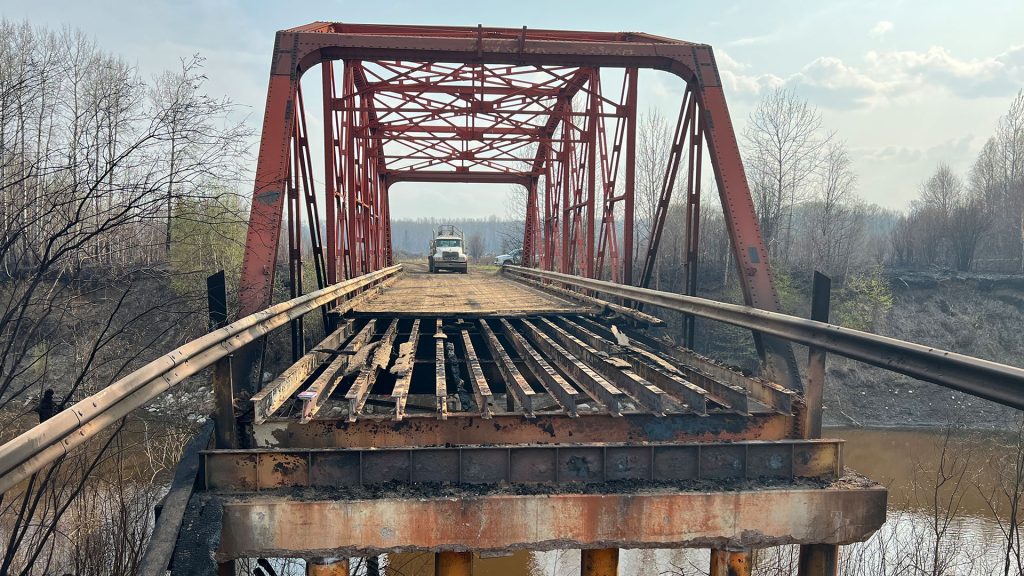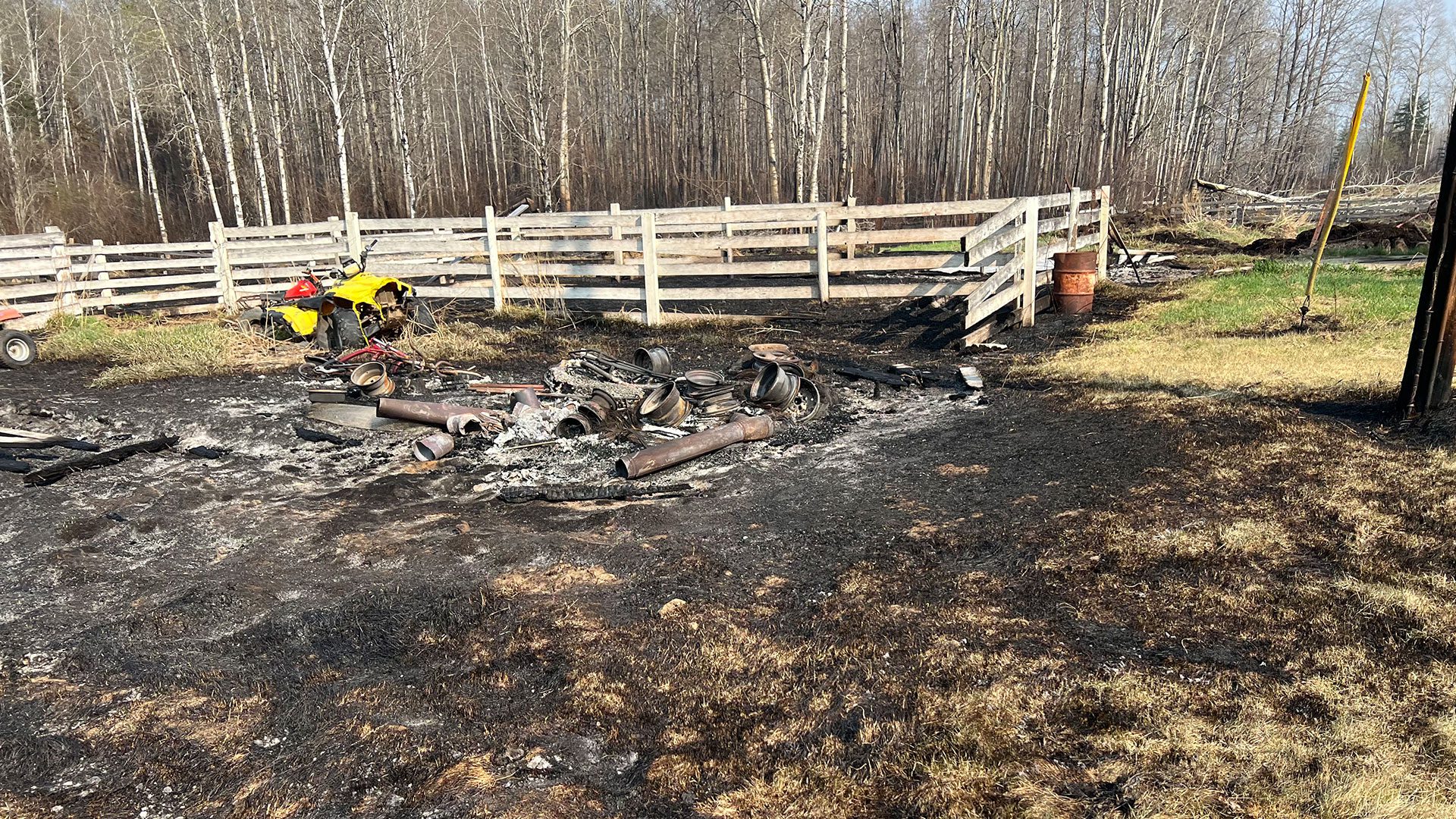
A bridge on Eastern Prairie Metis Settlements in Alberta burned down during the 2023 wildfires. Photo: Metis Settlements General Council
Indigenous Services Canada (ISC) is reporting that nine First Nations in Alberta are under threat by active wildfires and in Saskatchewan and three communities have experienced some fire damage.
“There’s been at least 150 homes lost, infrastructure, community infrastructure also lost, and over 4,000 evacuees,” said Patty Hajdu, the federal Minister of Indigenous Services.
According to the federal government, Sturgeon Lake Cree Nation, about 360 km northwest of Edmonton, 1,600 people were forced to leave after fire destroyed 45 structures and power infrastructure.
The Little Red River Cree Nation community of Fox Lake has been greatly affected by wildfire. All residents of Fox Lake have been evacuated to nearby communities.
Other affected communities include:
O’Chiese First Nation
Sunchild First Nation
Whitefish Lake First Nation #459
Swan River First Nation
Driftpile Cree Nation
Sucker Cree First Nation
Beaver First Nation
The Alberta government has also announced that Gift Lake Métis Settlement is under an evacuation alert.
Indigenous Services Canada told APTN News that both they are working with partners to continue to support people who have had to flee wildfires in the host communities of John D’or Prairie, High Level, Fort Vermillion, Garden River, and La Crete.
East Prairie Métis Settlement, located near High Prairie saw at least 27 homes and a bridge burned.
Saskatchewan wildfires
In Saskatchewan, there are active wildfires affecting First Nations communities including Buffalo River Dene Nation and Clearwater River Dene Nation. Salteaux First Nation also evacuated 100 people.
Buffalo River Dene Nation has evacuated a number of residents to Lloydminster, Sask. as a result of smoke in the area.
According to the federal government, the community is reporting the loss of 12 traditional cabins but no residents have lost their homes.
The Meadow Lake Tribal Council has confirmed that residents are returning from the Clearwater River Dene Nation.
The federal government is deploying nursing supports to assist with health care services, environmental public health officers, Jordan’s principle program coordinator’s and mental wellness and cultural support workers.
“For First Nations communities that have not been as severely affected, ISC officials in Alberta remain in contact with First Nations leadership as each situation evolves to ensure an effective response and maintain ISC supported services,” said a news release by ISC.
First Nations are also eligible to access funding through the Emergency Management Assistance Program (EMAP). EMAP provides money to First Nations communities for mitigation, preparedness, response and recovery.
The evacuation order was lifted on May 10 for the hamlet of Evansburg according a Facebook post by Yellowhead county.
People who have been displaced for almost ten days are now able to go home, but officials stress that we are still in an extreme wildfire situation in place.
“The wildfire risk has been reduced thanks to firefighting efforts and the shift in weather,” the post said.
Returning residents are being asked to stagger their re-entry if possible.
Alberta Wildfire data shows several active wildfires burning in and around the Yellowhead County region.
An incident management team, firefighters, helicopters and heavy equipment are working on this fire and air tankers are available if required, Alberta Wildfire said in a news release Tuesday.

Information for evacuees in Alberta and Saskatchewan
Individuals who have been affected by wildfire or who have been evacuated can access health services through provincial health care systems or access virtual supports such as 24/7 mental health support through the Hope for Wellness Help Line at 1-855-242-3310 or through online chat at hopeforwellness.ca.
In Alberta, additional mental wellness supports are also available via the Alberta Indigenous Virtual Care Clinic at 1-888-342-4822.
The non-Insured health benefits (NIHB) program provides eligible First Nations and Inuit clients with coverage for a range of health benefits that are not covered through other insurance.
In Alberta call 1-800-232-7301, and in Saskatchewan, call 1-866-885-3933 for all eligible benefits.
The Alberta government has announced that there is financial assistance for those who have had to evacuate due to wildfire.
Any Albertan who has evacuated under mandatory order for seven days or more can apply for a one-time emergency evacuation payment at alberta.ca/emergency using an Alberta.ca Account.
Eligible evacuees will receive $1,250 per adult and an additional $500 per dependent child under 18 years.
Evacuees should register at the reception centre identified for their community so staff can quickly assist them and connect them with the resources they need.
Evacuees with special needs who are unable to stay in an evacuation centre can request emergency financial assistance to cover hotel accommodations.
Special needs could include having a disability, a medical condition or other family needs.










